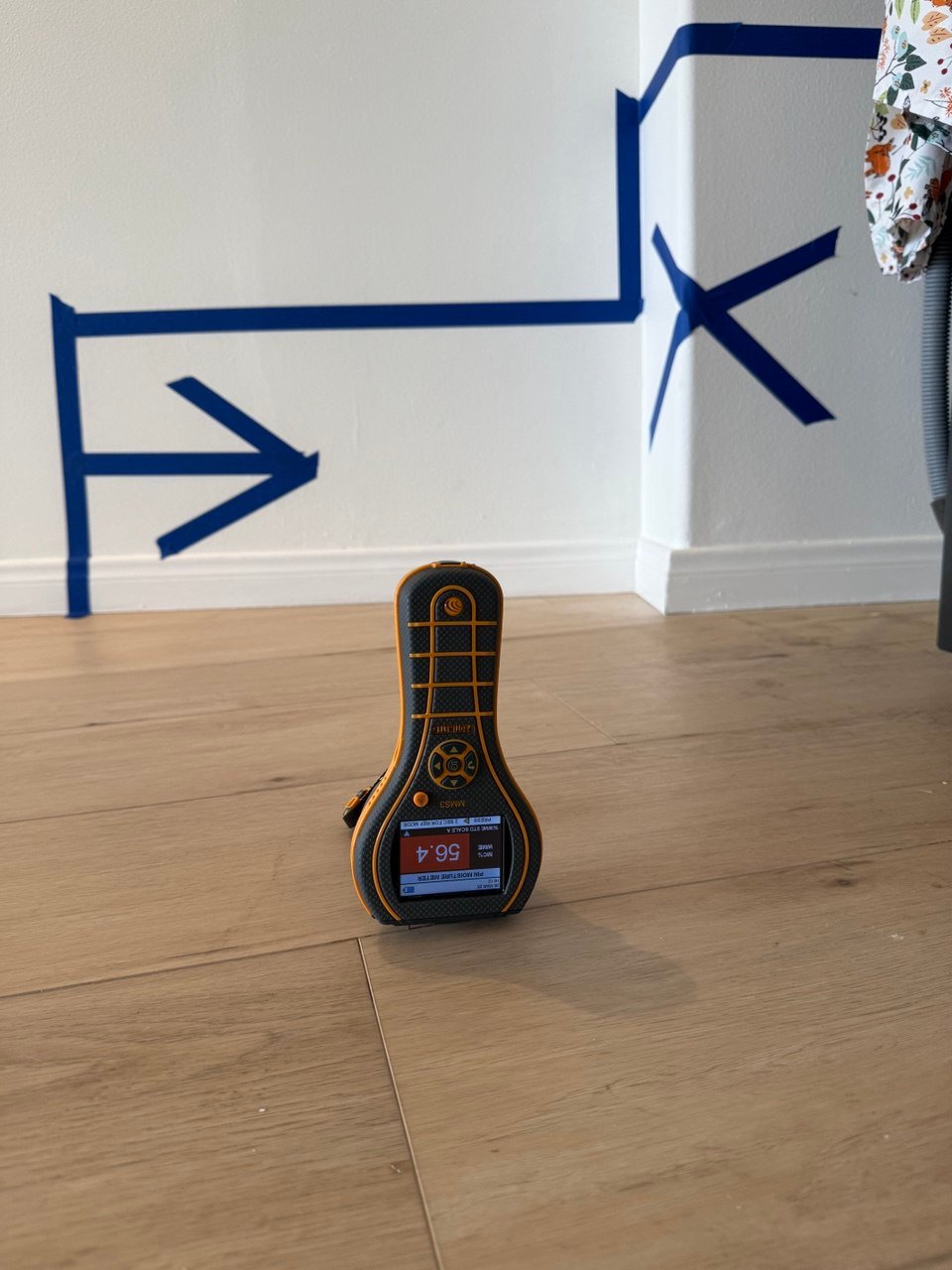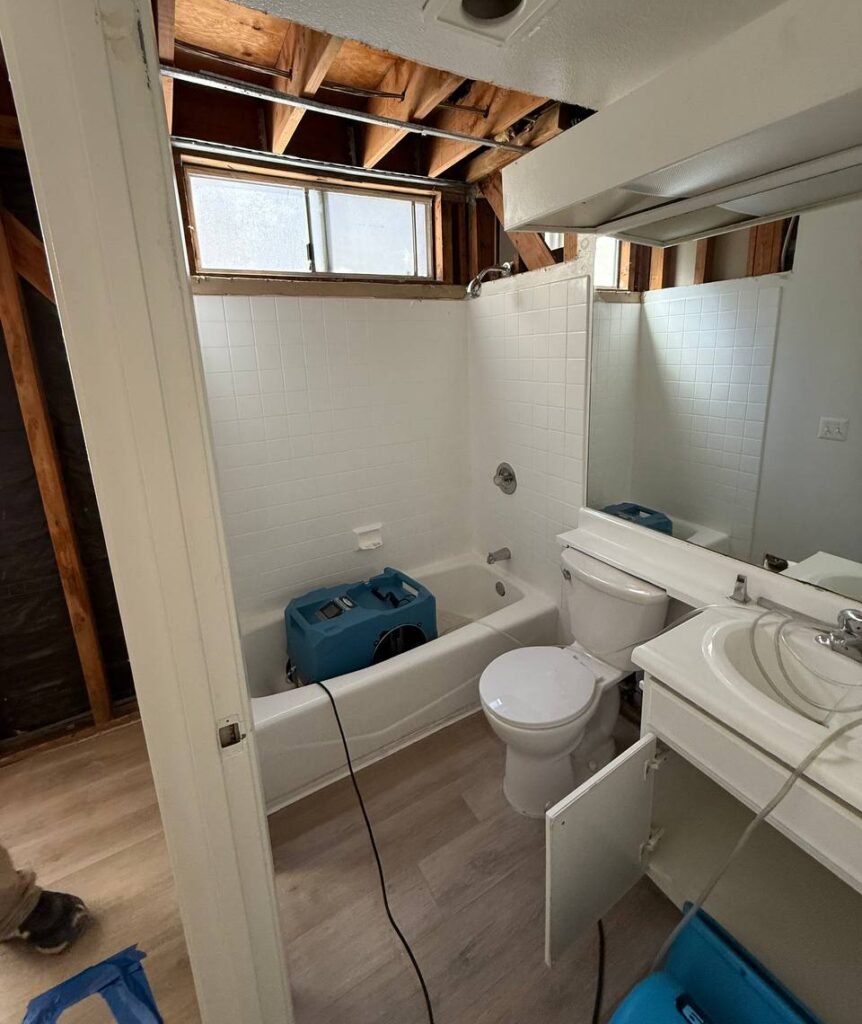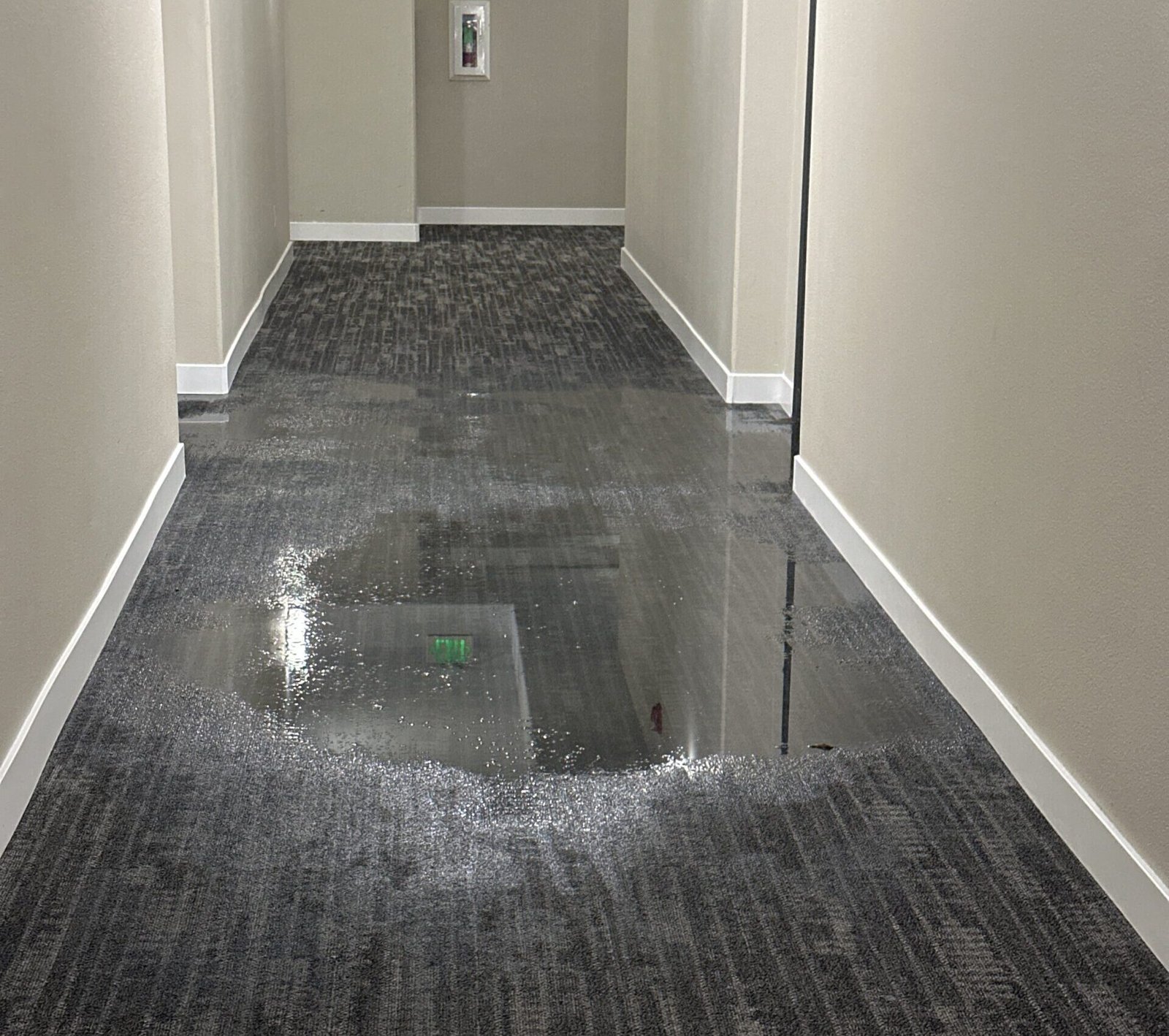Local, Certified Water Damage Restoration in Burbank — Trusted by Homeowners and Property Managers
In Burbank, water damage doesn’t wait — and neither do we. Whether you’re dealing with an appliance leak in a Magnolia Park bungalow, roof drain overflow near the Media District, or supply line rupture in a Rancho equestrian property, Onsite Pro Restoration delivers expert water damage restoration tailored to the architecture, finishes, and constraints of your specific property. We respond 24/7, work cleanly and quietly, and document everything from source control to structural drying using IICRC S500 standards.
Our teams are on the ground daily across Burbank’s neighborhoods, from post-war ranch homes north of Glenoaks to tight production-adjacent commercial properties near Olive and Riverside. We understand what makes water damage in Burbank unique — and we plan for tight parking, HOA protocols, and finishes that must be preserved, not demolished.
Get Started
Service Form
Common Water Damage Patterns in Burbank
Magnolia Park & Chandler Corridor
Older homes in this area often have original hardwoods, galvanized plumbing, and vulnerable appliance lines. Slow leaks from dishwashers or fridge feeds can go unnoticed, warping floors and saturating subfloors. Our floor mat systems and crawl space ventilation help preserve as much as possible. In addition to targeted mitigation, we can handle full restoration—including drying, cleaning, and careful content protection—so your historical finishes are preserved, not replaced.
Media District Mid-Rises
Flat roofs, parapets, and complex flashing often trap water until it tracks laterally across ceilings. We respect production schedules and noise windows while isolating the affected zones, protecting common areas, and working quickly to avoid disruption. After water extraction and containment, we also offer board-up and tarp-over services when needed to prevent further water intrusion until permanent repairs are made.
Rancho & Equestrian Properties
Garage walls and first floors often suffer when barn lines, wash racks, or irrigation systems leak. These zones frequently involve saturated framing and require cavity drying, selective removal, and coordination with plumbing or irrigation trades. We pack and protect contents in affected garages or tack rooms, keeping your property organized while we work.
Hill Streets & Starlight Hills
Steep lots create vertical water migration—a small leak upstairs can show as a stain or odor two floors below. We map migration paths using moisture meters and thermal imaging to ensure full dry-back and no surprises later. Our team is trained to identify secondary damage, including hidden mold or odor issues, and can provide specialty cleaning or deodorization as needed.
BUR Airport Area
Tight mechanical closets and rooftop HVAC units often overflow or drip into inaccessible cavities. We remediate insulation, dry surrounding materials, and recommend float switches and leak alarms to prevent recurrence. Hard-to-reach areas are ventilated and sanitized, and we take care to document all repairs for insurance and future maintenance.

Commercial Restoration and Specialty Services
We know that for Burbank’s commercial property owners and managers, downtime means lost productivity. Our commercial restoration and cleaning services are designed to minimize disruption and help you get back to business without delay. Whether you’re facing a water emergency in a busy production office near Olive or graffiti cleanup along Riverside, we’ve got you covered.
Specialty Commercial Services
- Document and Media Recovery: Salvage and restore critical business documents and media with advanced drying and preservation techniques.
- Biohazard Cleanup: Rapid response to mitigate health hazards and restore safe occupancy in compliance with local safety codes.
- Vandalism & Graffiti Removal: Professional cleaning to restore your property’s image while safeguarding finishes.
- Emergency Response Planning: We’ll help you create a disaster response plan tailored to your building’s needs, with 24/7 priority dispatch and a dedicated risk response manager ready should you ever need it.
We go the extra mile to ensure your building and its belongings are returned to their pre-loss state, coordinating with your facility managers, boards, or HOA as needed.
Our Proven Water Damage Restoration Process
Step 1:
Emergency Response & Inspection
- 24/7 dispatch across all Burbank zones
- Shutoff and source control when needed
- Electrical safety checks and initial path protection
- Immediate protection of valuables and vulnerable surfaces
Step 2:
Moisture Mapping
- Thermal imaging, pin/pinless meters to define affected areas
- Behind cabinets, inside walls, beneath floors, around chases
- Full assessment of water migration to prevent hidden damage
Step 3:
Scope & Expectations
- What can be dried in place vs. What requires removal
- Strategy based on IICRC S500 and building constraints
- Transparent communication: setting expectations for timelines and outcomes
Step 4:
Water Extraction
- Truck-mount or portable extraction units
- Reduces vapor load so dehumidification works efficiently
- Attention to both obvious and hidden water pockets
Step 5:
Containment & Controlled Access
- Poly or rigid containments with zipper doors
- HVAC isolation and dust control
- Multi-unit logs for HOAs and boards
- Board-up or temporary tarping when necessary for exposed structures
Step 6:
Drying to Target Moisture
- Commercial dehumidifiers and air movers
- Wall cavity drying, hardwood mat systems, floor tenting
- Daily moisture logs and final clearance checks
- Specialty equipment for hard-to-dry materials like plaster, stone, or dense cabinetry
Step 7:
Sanitization & Cleaning
- Salvageable surfaces cleaned appropriately
- Antimicrobial applied where needed—never as a shortcut
- Odor elimination, specialty cleaning for carpets, upholstery, and air ducts where affected
Step 8:
Documentation for Adjusters
- Xactimate-formatted estimate
- Photo logs, moisture maps, and equipment documentation
- Clarity that speeds approvals and protects disclosures
- Assistance with insurance claims and adjuster communications
Material-Specific Drying for Burbank Homes
Hardwood & Parquet Floors
We preserve original hardwood using gradual dehumidification, drying mats, and relief cuts. We avoid premature removal and only replace sections when readings confirm it’s necessary. Where appropriate, protective sprays can be applied after restoration to shield against future spills and stains.
Plaster & Lath Walls
North of Glenoaks, many homes still have plaster, which holds moisture longer than drywall. We manage vapor pressure and use soft airflow to avoid cracking and crazing, and provide careful patching and paint-matching when repairs are needed.
Stone & Tile over Mortar Beds
Common in bathrooms and kitchens. We use non-invasive meters to assess sub-surface wetting and create strategic relief to prevent odor and efflorescence. Hard surface cleaning and grout restoration are included for a seamless finish.
Built-In Cabinetry
We ventilate cavities through toe-kick removal first. Where panels swell or delaminate, we plan for sectional replacement while preserving millwork when feasible. We also coordinate with local millwork shops for authentic repairs when needed.
Laundry Closets & Mechanical Niches
Frequent water sources: burst hoses, PRV blow-offs, HVAC clogs. We remediate framing, drain systems, and recommend leak alarms or float switches. Disinfection and deodorization are included, and we’ll advise on upgrades to help prevent future issues.

Specialty & Additional Services
Beyond immediate water removal and drying, we offer: All services are delivered with respect for your property, efficient workflow, and clear communication—so you can get back to normal, fast.
Burbank Sewer Damage Cleanup
Trained crews handle situations involving sewage or trauma with compassion and discretion.
Burbank Fire Damage Restoration
If water damage is related to fire response, we coordinate smoke and soot cleanup, including sensitive electronics and textiles.
Burbank Mold Remediation
Full assessment and removal using industry best practices, with clearance testing available.
Burbank Hub Page
Explore all restoration services in Burbank. Careful inventory, storage, and cleaning of affected belongings during restoration.
Real Burbank Case Studies
Olive & Hollywood Way — Roof Drain Overflow
Stormwater backed up into a mid-rise apartment. Affected ~220 sq ft of ceiling and wall. We set containment, sealed HVAC, removed wet insulation, dried structure in four days, and coordinated roofing repair. Carrier closed the claim using our file alone.
Magnolia Park Bungalow — Dishwasher Line Leak
Supply burst damaged oak floors and crawlspace. We used floor mats, dehumidifiers, and perimeter relief cuts. Most flooring flattened by day three. Verified subfloor dryness by day five. Minimal repairs needed.
Rancho Garage/Office — Barn Line Rupture
Flooded wall cavities between a tack room and office. Containment set, selective removal done at base, insulation replaced, and shutoff added to barn line. Odor gone by day two.
Before We Arrive — Quick Actions
Shut off main water valve (if safe)
Avoid powering wet circuits
Place furniture on foil or blocks
Do not disturb bulging ceilings or old painted surfaces (pre-1978)
Notify your property manager for unit access or elevator use
Timeline You Can Count On
Same-Day Response: Stabilize and start drying
Drying Period: Typically 3–5 days (longer for plaster/mortar beds)
Daily Documentation: Shared with you and adjuster/manager
Repairs: Begin once dry-back is confirmed
Transparent Pricing Guidelines (Estimates Only)
Extent and access. One room with shallow wetting costs less than a two-level migration down a stair core.
Materials. Plaster, insulation, stone/mortar beds, and premium millwork add setup and dry time.
Containment complexity. Tight corridors, elevators, and quiet-hour rules increase protection and staging.
After-hours or phased work. Needed for HOAs or studio schedules.
Cause repairs. Roofing, membrane, plumbing, or electrical fixes may involve outside trades; we coordinate sequence.
Typical local ranges: extraction $0.30–$0.80/sq ft; containment/protection $150–$650 per chamber; air mover $25–$45/day; LGR dehumidifier $80–$130/day; HEPA negative-air $95–$170/day; selective drywall removal/haul-off $2.75–$5.75/sq ft; wet insulation removal $1.50–$3.75/sq ft; baseboard/toe-kick R&R $6–$12/lf. Moisture monitoring and photo logs are included within daily service lines.
Insurance Support that Reduces Delays
Most Burbank policies cover sudden and accidental water damage (burst pipes, storm intrusion, appliance failures). We:
Use Xactimate estimates adjusters prefer
Include moisture readings that prove scope
Show rapid stabilization and measurable dry-back
This reduces back-and-forth and shortens claim cycles. We’re happy to interface with your adjuster or HOA rep.
What Full-Service Reconstruction Means After Major Damage
When water, fire, or mold hits hard enough that basic repairs won’t cut it, full-service reconstruction steps in. This means more than just drying or cleaning—it covers everything needed to restore your property to its pre-loss condition, even if major demolition is required first.
Here’s what you can expect from a complete reconstruction service:
- Comprehensive Tear-Out and Rebuild: Severely affected walls, floors, ceilings, or built-ins are safely removed. Our approach is careful with what matters—preserving undamaged finishes and containing dust for sensitive materials like hardwood and plaster.
- Coordinated Trades: We bring in and sequence skilled trades—such as electricians, plumbers, and finish carpenters—to handle repairs like re-running wiring, replacing plumbing, or rebuilding structural components. You don’t have to track down a dozen specialists or manage the schedule.
- Standards You Can Trust: Every step follows the latest building codes and restoration guidelines (think IICRC S500 for water or S520 for mold). That means safer, longer-lasting results for your property and fewer headaches down the line with inspectors or your insurance provider.
- Attention to Detail: We restore everything back to match—not just function, but the appearance too, so you aren’t left with mismatched flooring or poorly patched drywall.
- Ongoing Communication: Photos, clear schedules, and daily documentation keep you and your adjuster in the loop at every phase—from demo to the final coat of paint.
Whether you’re facing fire-charred framing, extensive mold, or floors soaked beyond saving, full-service reconstruction gives you one point of contact and a streamlined path back to normal.

Responsive, Professional, and People-First
- Rapid response. We mobilize quickly—often same-day—because we know timing matters for both property and peace of mind. Crews are trained to work efficiently, minimize disruption, and keep your schedule on track.
- Empathy and detail. Water and mold losses are stressful. We approach every job with a people-first focus, mindful of the emotional and logistical disruption these events cause.
- Open communication. Owners, managers, adjusters, and families stay in the loop—every milestone, every update, every question answered. No radio silence, no confusion.
- Quality results. Our standards are rooted in precision and transparency, with every detail documented and every finish restored.
Whether you’re a property manager juggling HOA requirements or a homeowner navigating your first claim, you can trust Onsite Pro to handle the details and deliver the results—start to finish.
Why Burbank owners and managers choose Onsite Pro
- Local familiarity. Daily work from Magnolia Park and the Rancho to the Media District and Airport area. We plan around parking, access windows, and quiet-hour rules without drama.
- Measured decisions. Moisture targets and IICRC S500 guide every step. No premature closures that leave odor or cause recurrence.
- Finish protection. We safeguard hardwoods, plaster, stone, millwork, and stairs with the right airflow and coverings.
- Clear files. Photos, maps, logs, and line items read cleanly to owners, boards, and adjusters.
Call (818) 336-1800 now for rapid dispatch or a free local estimate.
What Does a Water Damage Restoration Company Do?
Restoration companies step in when property damage — from floods, leaks, or even unexpected mold outbreaks — threatens your home or business. Our job is to bring your property back to its best possible state, handling everything from water extraction and cleaning to repairs and moisture control. We address both visible damage and hidden risks, restoring floors, walls, and finishes while protecting your investment.
If you find yourself facing soaked carpets, warped hardwood, or suspicious stains spreading on the ceiling, that’s when you need a certified team like ours. We don’t just fix what’s obvious; we track the source, stop further damage, and ensure your space is thoroughly dried, sanitized, and safe for the long haul.
Professional Remediation Steps
Effective mold remediation involves much more than just scrubbing a surface. Here’s how trained specialists typically handle it:
Assessment and Containment
Certified pros start by identifying the extent and source of the moisture fueling mold growth. Using HEPA-filtered negative air machines and physical barriers (as recommended by the EPA and IICRC S520), they contain the affected area to prevent spores from spreading—especially crucial in multi-unit buildings and tight spaces.Filtration and Removal
High-efficiency air scrubbers and vacuums filter out airborne spores, helping to protect both occupants and adjacent rooms. Non-porous surfaces are cleaned with antimicrobial solutions (per CDC guidelines), while porous materials beyond saving—like damp drywall or carpeting—are safely removed and discarded.Dry-Back and Verification
Stabilizing and drying the environment is key. Professionals monitor moisture levels to ensure target dry-back before closing up, so there’s no hidden residue waiting to reappear. Inspection often includes post-remediation air sampling to verify clearance, bringing peace of mind to homeowners and managers alike.
Remember: patching over visible mold or painting it is never a solution. If you suspect an issue—distinct earthy odors, new allergies after a rain, or suspicious staining—call for an expert assessment before it spreads. Proper, measured remediation helps keep Burbank’s homes both safe and healthy year-round.
